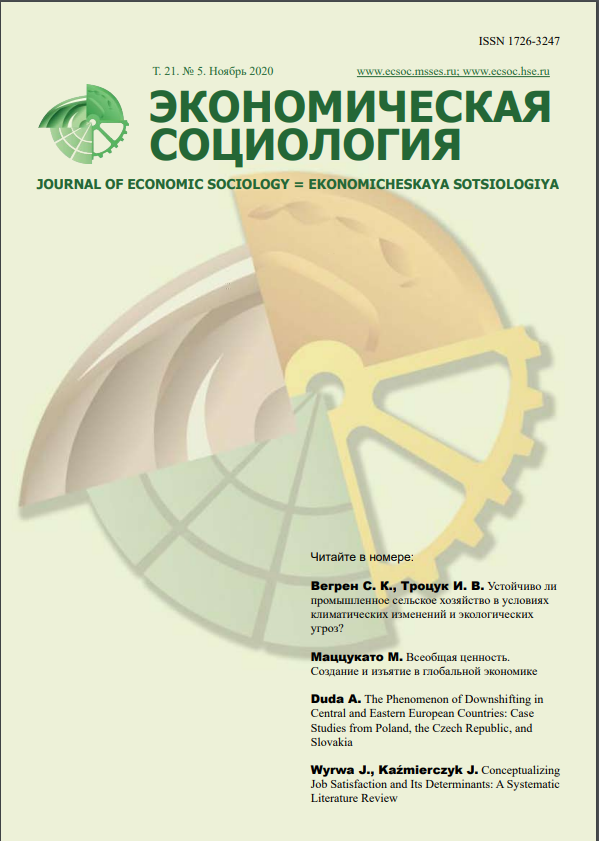Is Industrial Agriculture Sustainable During Climate Change and Ecological Threats?
Abstract
Russia has experienced food revolutions in production, distribution, and consumption since 2000. These revolutions have transformed the food system, but systemic changes are not complete — a sustainable agricultural system is not likely in Russia anytime soon; the effects of climate change are likely to worsen and force further revolutionary change to Russia’s food system, which in the short-term could cause food insecurity. The state retains its key role in regulating the food system, primarily due to considering food security a factor of national security, has been achieved. The Russian statist discourse on food security, which has intensified under the Western sanctions and pandemic restrictions, ignores the challenges that the global agro-industrial sector faces at the same time being the source of anthropogenic changes. Moreover, this discourse rarely takes into account environmental challenges for the Russian agro-industrial sector. The article shows the relationship between climate/ecological changes and the dominant industrial agriculture not in the form of alarmist statements, but by describing the social-economic-ecological context, in which the research questions about current and future restrictions and consequences of industrial agriculture should be asked. The article presents examples of sustainable agriculture in Russia, identifies obstacles to moving away from industrial agriculture, and considers possible scenarios for the transition to sustainable agriculture.













